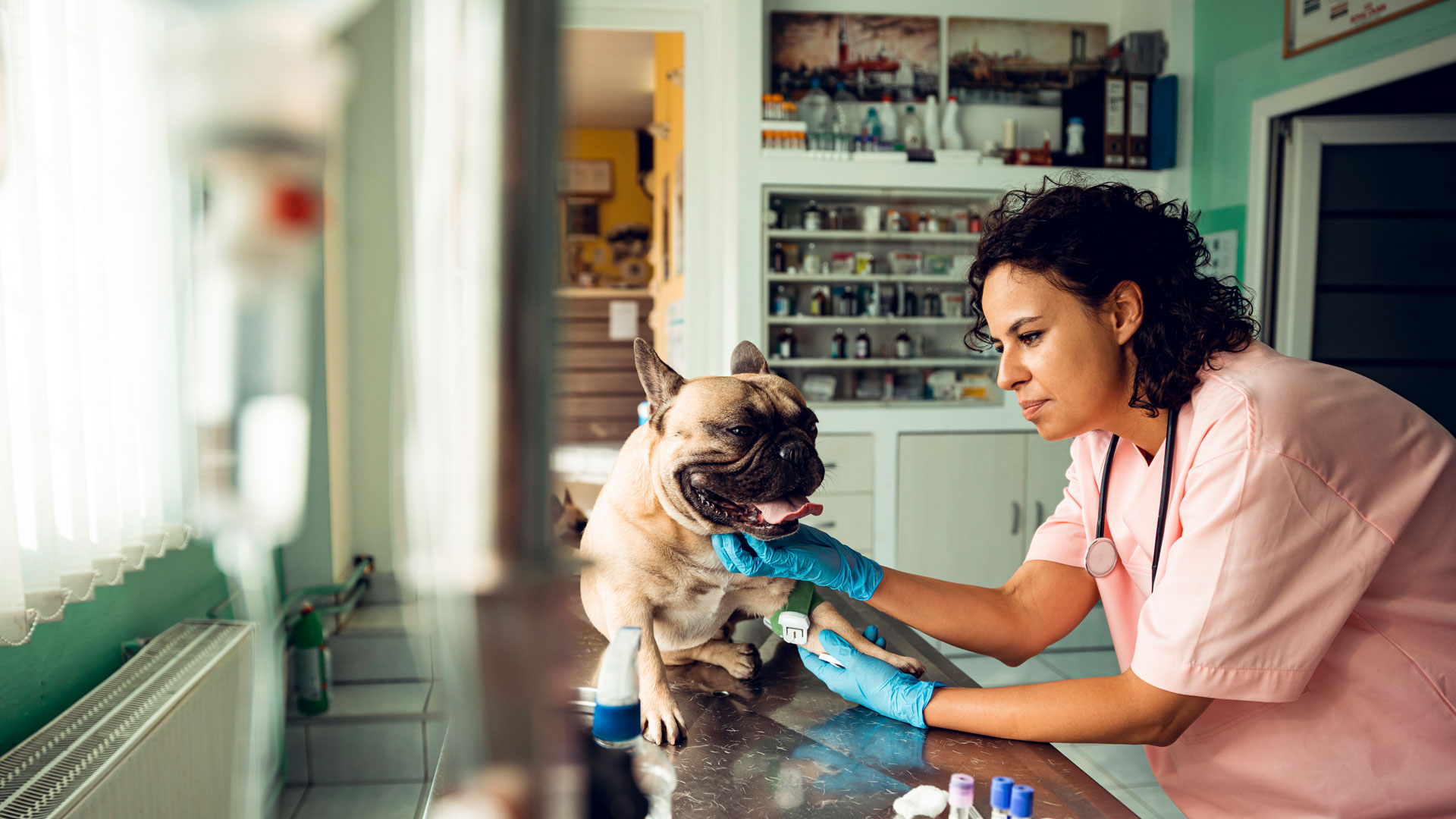Three home remedies for dog allergies (and they're all pretty simple)
If you think your dog might have an allergy, should you try home remedies for dog allergies?

Whether your dog is nibbling away at their itchy paws, experiencing fur loss or displaying signs of an upset stomach, an allergy could be the root cause. However, while there are plenty of home remedies for dog allergies available online, are they actually any good? We’ve spoken with veterinarian Jo Woodnutt to break down whether you can treat dog allergies at home – and how to do so safely.
Dog allergies can be a frustrating ailment to handle as an owner, even with the best dog food for allergies. They can be difficult to diagnose, as they could be caused by your dog’s food or their environment. Even once you’ve discovered the root of the problem, it might not be so simple as getting rid of the allergy trigger. After all, if they’re allergic to pollen, you’re not going to be able to keep your dog inside all throughout spring and summer!
While you might be tempted to treat your dog’s allergies with a home remedy, we would always recommend visiting your vet first. Common symptoms of dog allergies can actually be caused by other ailments as well, so you want to double check that you’ve got the right diagnosis first. Plus, once you’ve confirmed the allergy, your vet will be the best person to advise you on how to treat it.

Can you treat dog allergies at home?
So, can you help your dog with its allergy at home? We asked vet Jo Woodnutt what she would advise. “While there are lots of things you can do at home to help your dog’s allergies, it’s always important to get a vet’s viewpoint too. For many dogs, medication will be required alongside your home remedies.”
These medications might be taken orally, similarly to how humans might take antihistamines for pollen, dust, or pet allergies. However, you might also be prescribed topical treatments and told to apply them to your dog. In some cases, dogs can also be given allergy shots as well – these can reduce itchiness for between four to eight weeks in most dogs.
While there are some useful home remedies for dog allergies to try, it’s important to keep your vet included in the conversation around your pup’s care. Jo adds that “Trying home remedies alone without consulting a vet will be unlikely to help – as your dog’s allergies are untreated, they will be uncomfortable and they may progress to skin and ear infections.”

Dr Joanna Woodnutt specializes in helping clients understand their pets better. After graduating as a veterinarian from the University of Nottingham, Dr Woodnutt went on to practice companion animal medicine in the Midlands. She soon developed a love of consulting and helping clients with medical problems such as dermatology, behavior, and nutrition.
3 home remedies for dog allergies to try out
While there are some safe home remedies for dog allergies, there’s also a lot of misinformation on the internet about what’s best for your dog. Jo warns that “There are lots of unsafe home remedies on the internet, and even more that are benign but ineffective. Checking things with your vet before starting them at home is a good idea.”
Jo then went on to share the best home remedies that readers can try themselves.
1. Reduce the allergens in your environment
Jo advises that “If your dog has been diagnosed with environmental allergies, you should try to reduce the allergens they come into contact with as much as possible. One proven method is to bathe them more often to help wash pollen and other allergens from their skin and fur.
To help prevent further itchiness, Jo says that “you may need to find a conditioning shampoo so you don’t dry out their skin.” She also adds that, “rinsing your dog's feet after a walk may also help”. This is because you’ll be washing away any allergens that might be clinging to your dog’s fur or paw pads that they could then track into the house (which, in itself, will prolong their discomfort).

2. Buy smaller bags of kibble
While it might be cost- and time-effective to buy large bags of kibble that you don’t need to worry about replacing very often, you might be surprised to learn that this could be contributing to your dog’s allergy. Jo says, “If your dog is on dry food, try buying smaller bags to reduce the invasion of storage mites.”
This study from BMC Veterinary Research says that “Storage mites… can multiply on protein- and fat-rich dog foods.” However, it adds that mites are usually “undetectable in newly-opened commercial dog foods”. This means that storing your dog’s food correctly in a cool environment with minimal humidity can help to reduce the risk of storage mite contamination.
Jo adds that “You can also freeze the food in batches of a week’s worth to keep mites to a minimum.”
3. Adding Omega-3 to your dog’s diet
If you’re looking to help your dog’s allergy improve, Jo says that “Adding Omega-3s to your dog’s diet may also improve their skin condition and help them to fight off allergens themselves.”
After supplementing your dog with Omega-3 fatty acids, you’ll likely start to see a shinier coat and better skin condition overall. This is because Omega-3 fatty acids can help to reduce inflammation and improve the skin’s general condition. As your dog’s skin will generally be healthier, its natural barrier will help to protect against allergens such as pollens, dust mites, and molds better. This will help to minimize the allergic reaction.
It’s important to note that you’re not likely to see an instantaneous improvement in your dog’s allergies, as it can take a month or two for the old fur to fall out and be filled in with new, healthier fur. However, with consistent use, you’re likely to see positive changes after about a month.
We’d recommend speaking with your vet for a recommendation of the best kind of Omega-3 supplement to try. This is so that you ensure that you’re giving your dog the right kind – and the right amount as well. You can give dogs too much fish oil, so checking in with your vet will ensure that you’re feeding your dog the correct dosage.
Want to know more? Check out our vet's guide to skin allergies in dogs.
PetsRadar Newsletter
Get the best advice, tips and top tech for your beloved Pets
Louise Carey is a freelance writer and the Editor of sister website Top Ten Reviews. She has been working in publishing for seven years, contributing to publications including The Independent, TechRadar, Digital Camera World and more. As the proud pet parent of a reactive border collie with a food allergy, it’s been necessary for Louise to explore a variety of fun and exciting ways to enrich an energetic dog that can’t always go on walks. She’s passionate about sharing the information she’s learned to help other pet owners as well.

